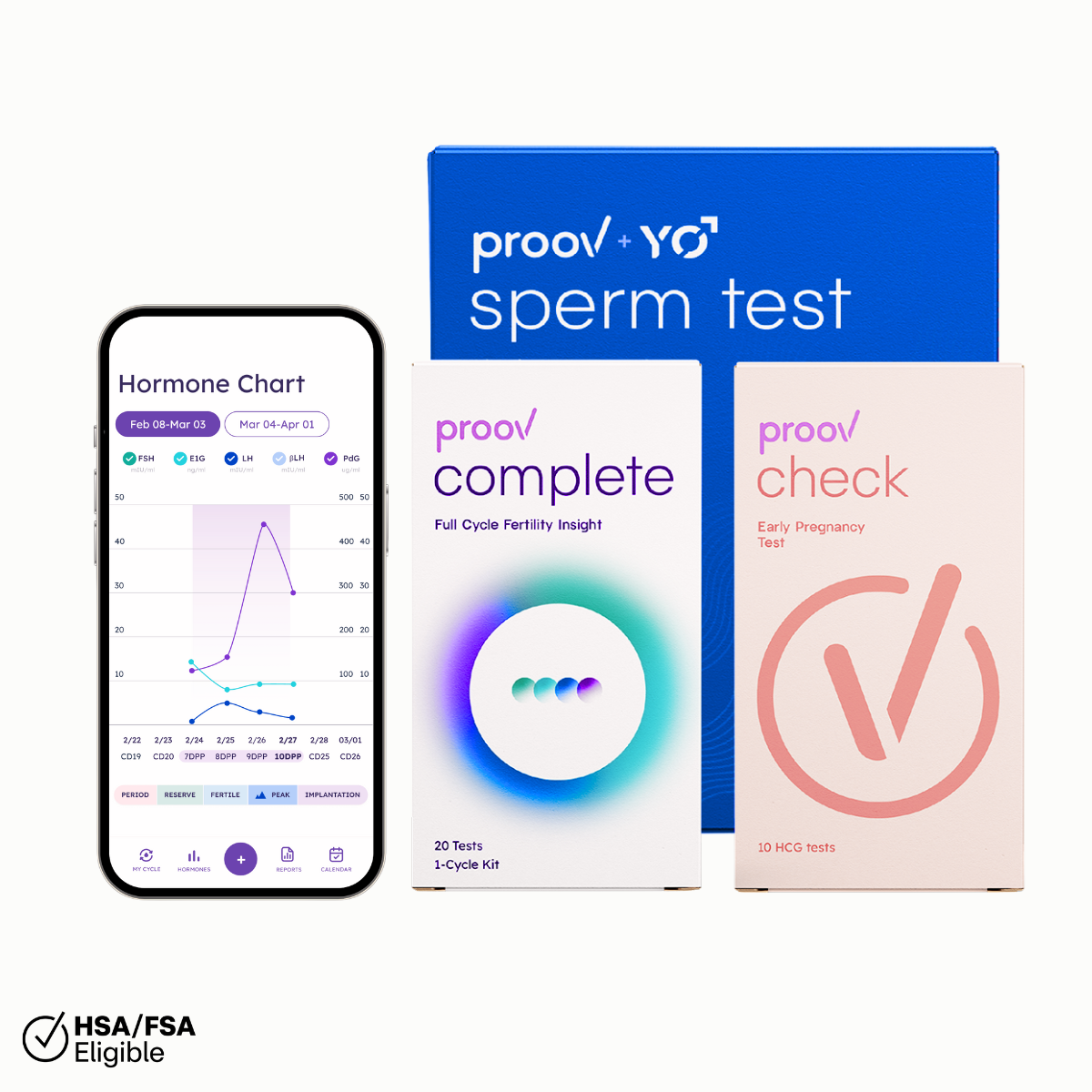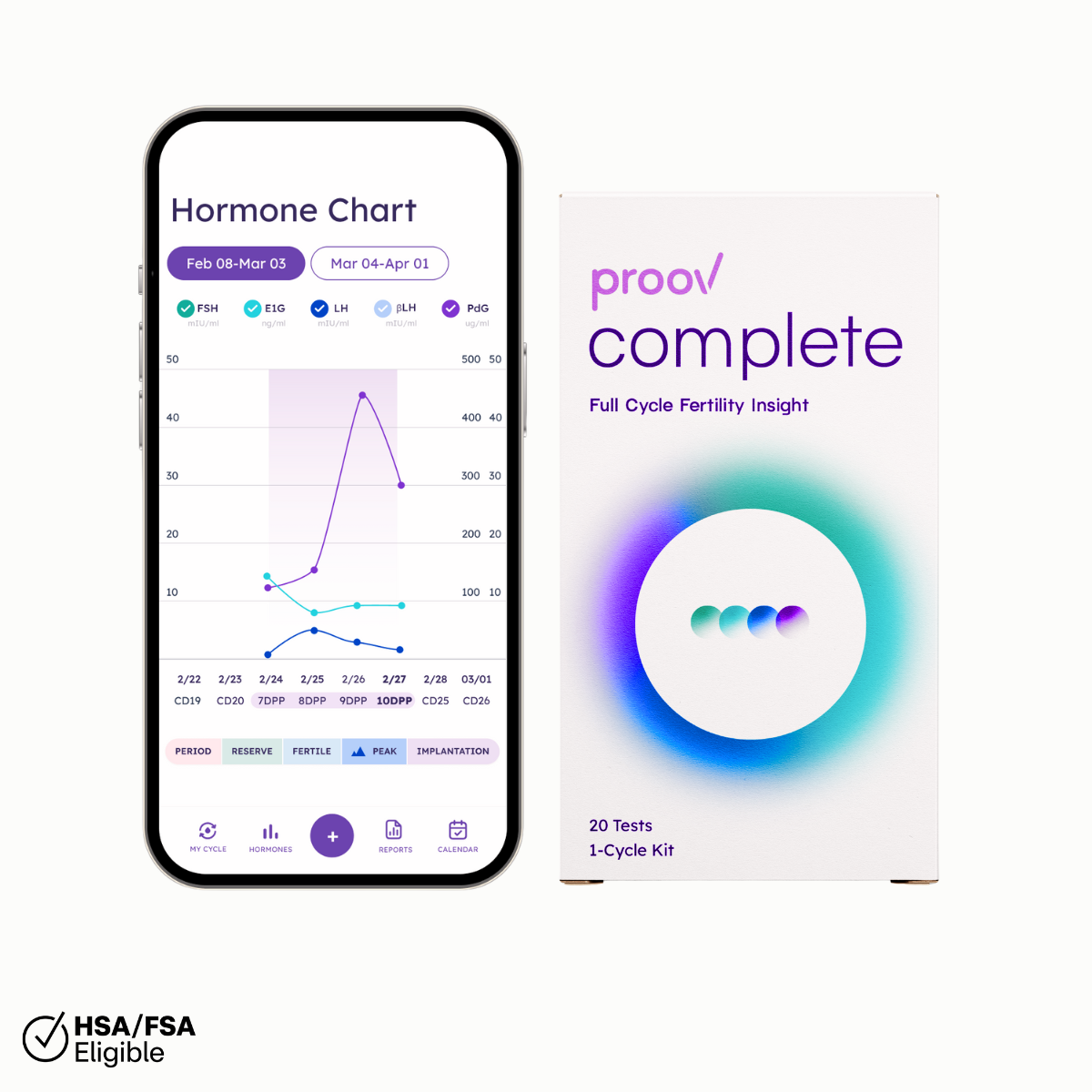What to Know About Male Fertility & How to Improve it
It’s so easy to focus on female fertility because, well, they’re the ones who typically get pregnant! But it’s so important to remember that there’s a second half to the equation egg + sperm. And since male factor infertility accounts for at least half of infertility cases, if you’re trying to conceive it’s important to keep tabs on the male side of things too.
While there are many potential causes of male factor infertility, two of the most important aspects of sperm quality are sperm concentration (how many sperm) and sperm motility (how well they swim). While it only takes one sperm to fertilize an egg, having a high sperm count and sperm that can swim well greatly increases your chances of pregnancy.
Finally, it’s really important to know that it takes about 2.5 months for sperm to mature, meaning that the changes you make today will impact sperm 2-3 months from now. So if you’re wondering how to increase sperm count, the time to start is now! Here are some of our top ways to improve male fertility.
-
Prioritize Sleep
While it may be easier said than done, one of the best things you can do for sperm health is to get enough sleep and go to bed on time. Studies have found that both sleeping too little and too much, and going to bed very late, lead to production of antibodies that can actually destroy sperm. For best sperm health, aim for 8-9 hours a night.
-
Stay Active & Exercise
Exercise isn’t just good for your heart, muscles, brain, and mood – it’s good for sperm, too! Men who get regular moderate-to-vigorous exercise generally have greater sperm concentrations and motility than those who are mostly sedentary.
It’s important to find the right balance, though. If you’re consistently performing very intense exercise, it can result in a decrease in sperm quality. For most people this won’t be a concern, but you should consider less intense exercise if you’re running more than an average of 65 miles a week, cycling multiple hours a week, or climbing and spending lots of time at high altitude.
-
Get Enough Vitamins C & D
Getting enough micronutrients in your diet is important to make sure your body can make high quality sperm. In studies, vitamin C supplementation increased sperm count due to its antioxidant effects. Vitamin D has also been shown to be important for testicular function and increasing sperm health.

-
Minimize Stress as Much as Possible
Ultimately, stress is just one piece of the puzzle, and isn’t helpful to hear to “just relax” when it comes to infertility. Stress has an impact on sperm health, though, and to the extent that you can minimize both lifestyle and emotional stress, it will help improve sperm quality. If you’re overly stressed, it’s worth being honest with yourself and your partner about what lifestyle changes you might need to make.
-
Take a Fenugreek Supplement
Fenugreek, an herb used commonly in Mediterranean and Indian cooking, has actually been shown to increase free testosterone levels and sperm count! It’s great to include in your food, but of course the most convenient way to add it to your diet is as a supplement.
-
Avoid Certain Prescription Medications
While you should always consult with your doctor regarding your prescription medications, it’s important to know that some can have a detrimental impact on sperm quality. This article provides a comprehensive list as of 2017, but some of the most common include several antidepressants and anti-seizure medications.
You should never stop taking your medication without consulting your physician. If you’re trying to conceive, however, it’s worth a conversation with your doctor about the effects some medications may have on sperm quality and if you have other options.
-
Get Enough Zinc
Zinc is another micronutrient that’s important for good sperm production! Zinc is actually the second most abundant trace mineral in our bodies, and it’s really important as an anti-inflammatory and in the processes that sperm use to grow, survive, and swim.
Especially since too much zinc can be bad for you, you probably don’t need to take a zinc supplement unless your doctor has confirmed that you have a deficiency. However, it’s important to get enough zinc in your diet, and there are many great ways to do this!
Fish, meat, and other seafood (especially beef and oysters) contain lots of zinc, as do eggs and dairy products. In the US, lots of breakfast cereals are actually zinc-fortified too! For more details, check out this information from the National Institutes of Health.
-
Try Ashwagandha
This one goes back to number 4, minimizing stress! Ashwagandha is an herb that’s been clinically proven to reduce cortisol levels and therefore help reduce stress. This can help with sperm production, too. Ashwagandha supplements are easy to find and can help females, too – that’s why we included it in our Pro supplement to support progesterone production!

-
Eat More Healthy Fats
Fats are an important source of long-term energy for your body, and “healthy fats” (specifically monounsaturated and polyunsaturated fats) are associated with better sperm production. These include omega-3s, commonly found in fish (hey, more zinc there too). Make sure you’re eating enough, and look specifically for unsaturated fats whenever possible, because studies have shown that a diet high in saturated fats is associated with low sperm quality.
-
Avoid Excessive Alcohol & Drug Use
One of the more common things you hear about in regards to supporting fertility is reducing alcohol consumption and avoiding recreational drug use. Marijuana use (or any other products containing CBD) reduces sperm quality, but it isn’t known for how long.
Alcohol use, especially chronic or heavy drinking, is also detrimental to sperm production because of the oxidative effects on the body. In particular, studies have found that drinking one drink a day or more reduces sperm quality. Occasional drinking has not been found to be a problem, so like most things, moderation is key.













